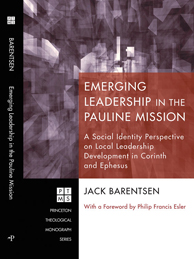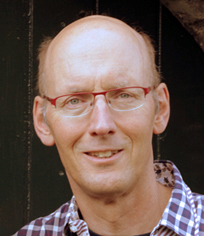
Presenters: Jack Barentsen
Date: 19 April 2017
Visit Amazon or your favorite bookstore to buy the book on which this webinar is based.
Share:
Requires Member Login.
Not a member?
Join today!
Leadership is changing widely and religious leadership is no exception. Themes like community formation, leadership emergence, and social identity have become vital for new forms of leadership. This webinar will introduce the social identity theory of leadership and then apply it to religious leadership. Surprisingly, the leadership of the Apostle Paul, living in the Mediterranean world in the first century, turns out to be an excellent illustration of religious identity leadership. Paul founded many new religious communities in a culture that valued strong hierarchy and with clear scripts for honoring leaders. Paul only partially aligned with these cultural values and scripts, while differing in other aspects. Due to Paul’s short stays at cities like Corinth and Ephesus, he was forced to deal by letter with cultural issues in the religious identity formation of his communities. These letters afford us a window to study his leadership. Paul’s attitude towards his cultural constraints is enlightening. He adapted leadership structures, while simultaneously resisting the adoption of cultural leadership styles and values. He also had to defend his own foundational, apostolic leadership. Consequently, he was instrumental in shaping Christian leadership styles and in directing leadership emergence for these communities in a way that remains instructive for today’s religious and public leaders.
Outcome of Attending
- Introduce the basic concepts of the social identity theory of leadership
- Show how this leadership theory is helpful in studying historical forms of religious leadership
- Show how social identity leadership is applicable in settings of public and religious leadership
Speaker Information

Jack Barentsen (PhD), studied physics, philosophy and theology in the USA, and served in his home country the Netherlands as pastor and church planter. In 2001, Jack started teaching at the Evangelische Theologische Faculteit in Leuven (Belgium), focusing on leadership development in early Christianity through the lens of modern leadership theory. His teaching and research focus on various forms of church and religious leadership in multiple countries. He is married and has two daughters.

